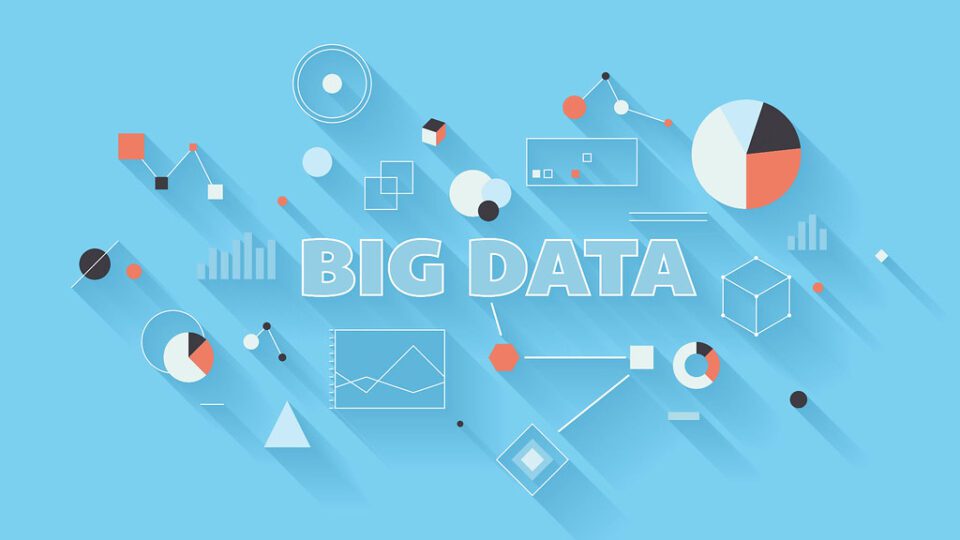The reliance on predictions and intuition in making business decisions is becoming increasingly obsolete. With the rise of Artificial Intelligence (AI), businesses are moving towards a data-driven approach. This is where Big Data becomes important in Digital Marketing.
We cannot deny that “Data is everything“However, the bigger challenge is not only collecting but also analyzing this huge volume of data to draw valuable conclusions. This requires methods that are capable of not only managing the data but also analyzing and drawing measurable results that can support marketers.
Big Data is not only beneficial for Digital Marketing but also for all fields that deal with large amounts of data that need to be analyzed. In this article, we will not only learn about the importance of Big Data in Digital Marketing but also how to use it to boost Sales.
The Importance of Big Data in Digital Marketing
Big Data has proven its indispensable role in the field of Digital Marketing. Not only providing information about the strengths and weaknesses of the business, Big Data also brings insights into customer behavior, thereby helping businesses make more effective decisions. In particular, data is only truly valuable when we can analyze and draw useful meanings from dry numbers.
See also: Chatbots and Artificial Intelligence (AI)
Here are some prominent areas where Big Data plays an important role in Digital Marketing:
Sentiment Analysis
Imagine if you had a tool that could detect the underlying emotional state of your customers. This would make understanding your customers easier, helping you make better business decisions.
Through sentiment analysis, marketers can understand how customers feel about their Brand. These tools analyze Social Media posts, search queries, reviews, etc. to find the meaning behind them. Sentiment analysis is a powerful tool to help you retain and strengthen your customer relationships.
Target the Right Audience
Have you ever deleted or unsubscribed from emails from brands that constantly send you promotional messages? It’s important not to become a part of that list.
Big Data not only helps determine how people use a service or product, but also segment people based on demographic and social factors. This helps marketers optimize and personalize their marketing campaigns. If you send emails or messages that are tailored to your customers’ interests and needs, your emails are less likely to end up in their spam folder.
Predictive Analytics
Big Data analytics allows businesses to analyze historical data to predict future customer needs. Based on these predictions, marketers can adjust and improve the quality of product production. In the past, businesses often relied on customer trends without a reliable database. Today, thanks to Big Data, they can make more accurate and clear predictions about customer shopping trends.
Increase sales
Ultimately, your main goal is to convert visitors into customers. Big Data-based analytics and strategies will help increase conversion rates, which in turn increases revenue.

Big Data Applications In Digital Marketing
Now you know the importance of Big Data, especially in today’s era. However, its practical application is still a problem to be solved. Here are five ways to implement Big Data in Digital Marketing to improve conversion rates.
- Ensure data is accurate.
- Improve brand awareness.
- Enhance customer experience.
- Optimize marketing campaigns and websites.
- Reduce marketing costs.
Let’s dive into each point to understand better.
Have Accurate Data
Marketing decisions will be inaccurate without reliable data. What you may not know is that having too much data can also hinder your marketing strategy if you don’t know how to use it effectively. Big Data helps analyze unstructured data, but it requires a specific method to do so.
This is where Key Performance Indicators (KPIs) come into play. KPIs are metrics that help you measure the performance of your campaign. For example, page views, clicks, CTA clicks, number of emails collected, etc. KPIs help you measure performance in a specific and precise way, regardless of your goals.
Increase Brand Awareness
Brand awareness is how customers feel about your brand. This includes both brand awareness and brand reputation. Building brand reputation is a continuous process, and Big Data supports this process by enhancing marketing efforts. Ultimately, brand reputation increases with customer engagement and improved customer experience.
Enhance Customer Experience
Big Data, through semantic analysis, helps you understand how your customers feel about your brand. Increasing brand awareness and improving customer experience are two closely related goals. When you understand your customers, you can create CTAs (Calls to Action) that are relevant to their needs, helping you retain them effectively.
A prime example is Netflix, which saves up to a billion dollars a year on customer retention thanks to advanced data analytics. Netflix analyzes users’ personal preferences and recommends shows and movies similar to what they have watched.
Optimize Marketing Campaigns and Websites
This is one of the most effective uses of Big Data. Website optimization, where SEO and Big Data combine, can produce better results. With Big Data, you can analyze the effectiveness of past campaigns and clearly identify what worked and what didn’t.
For example, if your Google ads are more effective than your Facebook ads, this may indicate that you should spend more on Google. Additionally, this information helps you target different customer groups based on location, gender, age, etc. This way, you can optimize your website, campaigns, and products, as well as personalize them.
Save Your Marketing Budget
In Digital Marketing, using data allows you to accurately assess the impact of your spend on your business and its effect on your bottom line. For example, to determine which channels drive the most traffic, you can add parameters to your URLs, allowing you to dynamically adjust your digital spend.
For stakeholders, it is important to know whether their marketing budgets are delivering results. When used effectively, data not only helps you execute more effective marketing campaigns, but also helps reduce Advertising costs, while driving marketing campaign success and optimizing the supply chain, thereby contributing to business growth.
Summary of Big Data in Digital Marketing
Hopefully, you now have a better understanding of Big Data and how to apply it to enhance your marketing campaigns. However, before you apply Big Data to your marketing strategy, you need to determine whether you have enough data.
For small businesses, building an online presence should be the top priority. Once you have a solid foundation, you should start considering using Big Data. For larger, established businesses, if you notice problems in your marketing campaigns, integrating Big Data to improve your strategy and achieve better results is a smart choice.
Comment Policy: We truly value your comments and appreciate the time you take to share your thoughts and feedback with us. Note: Comments that are identified as spam or purely promotional will be removed. To enhance your commenting experience, consider creating a Gravatar account. By adding an avatar and using the same Email here, your comments will feature a unique and recognizable avatar, making it easier for other members to identify you. Please use a valid email address so you can receive notifications when your comments receive replies.
